Finalists for the Pauli Murray Book Prize in Black Intellectual History
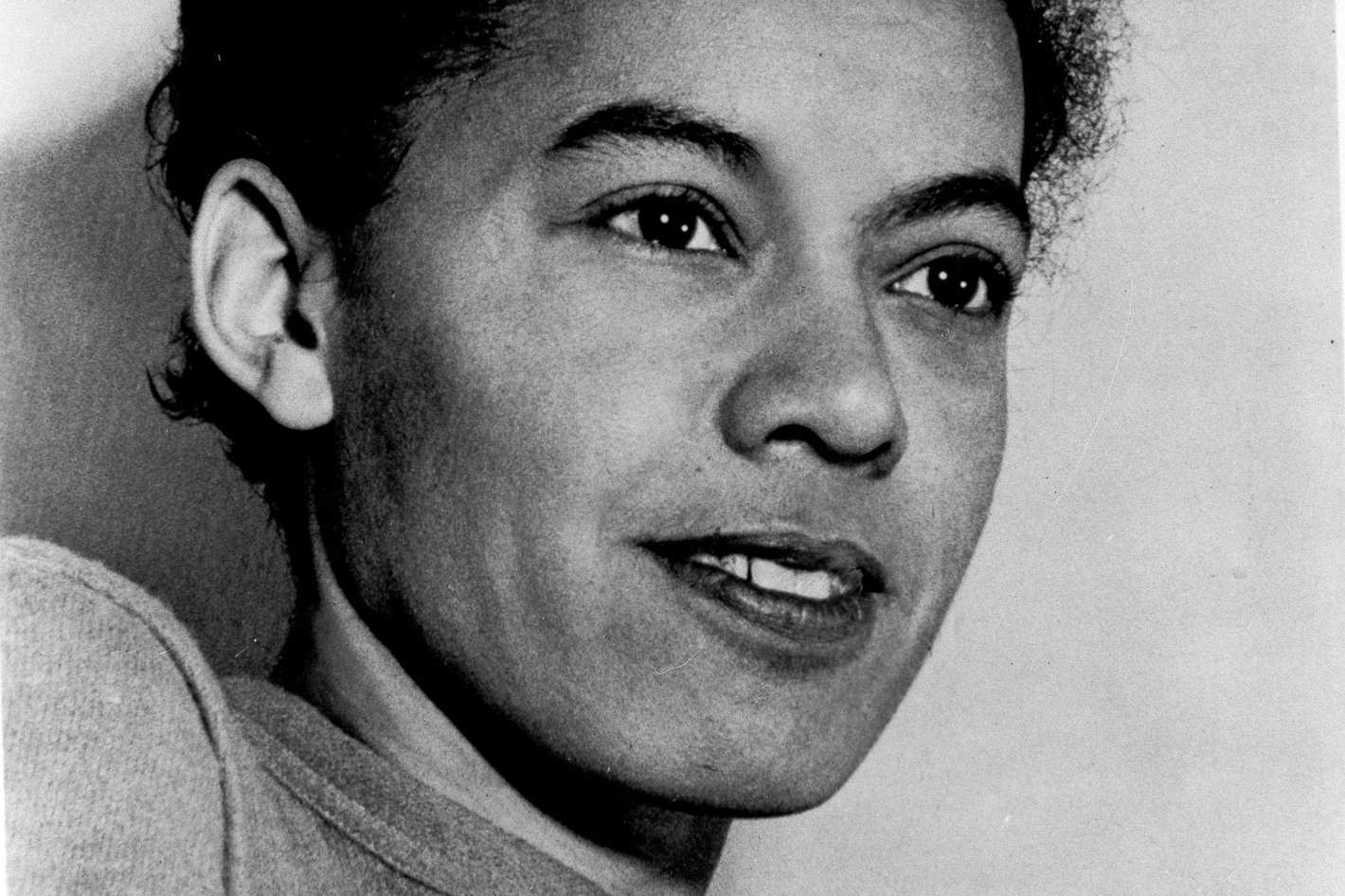
The African American Intellectual History Society (AAIHS) is pleased to announce the finalists for the first annual Pauli Murray Book Prize for the best book in black intellectual history. Named after lawyer, author, and women’s rights activist-intellectual Pauli Murray, this prize recognizes the best book concerning black intellectual history (broadly conceived) published between January 1, 2017 and December 31, 2017 by a member of AAIHS. The winner of the 2018 Pauli Murray Book Prize will receive $1,000, a featured week-long roundtable on the book in Black Perspectives, and a featured interview published in Black Perspectives. The award winner will be announced at the 2018 AAIHS Conference, which will be held at Brandeis University from March 30-31, 2018. Here are the five finalists selected by this year’s fellowship committee.
Brittney C. Cooper, Beyond Respectability: The Intellectual Thought of Race Women (University of Illinois Press, 2017).
 In the late nineteenth century, a group of publicly active African American women emerged from the social and educational elite to assume racial leadership roles. Their work challenged thinking on racial issues as well as questions about gender, sexuality, and class. Beyond Respectability charts the development of African American women as public intellectuals and the evolution of their thought from the end of the 1800s through the Black Power era of the 1970s. Eschewing the Great Race Man paradigm so prominent in contemporary discourse, Brittney C. Cooper looks at the far-reaching intellectual achievements of female thinkers and activists like Anna Julia Cooper, Mary Church Terrell, Fannie Barrier Williams, Pauli Murray, and Toni Cade Bambara. Cooper delves into the processes that transformed these women and others into racial leadership figures, including long-overdue discussions of their theoretical output and personal experiences. As Cooper shows, their body of work critically reshaped our understandings of race and gender discourse. Cooper’s work, meanwhile, confronts entrenched ideas of how–and who–produced racial knowledge.
In the late nineteenth century, a group of publicly active African American women emerged from the social and educational elite to assume racial leadership roles. Their work challenged thinking on racial issues as well as questions about gender, sexuality, and class. Beyond Respectability charts the development of African American women as public intellectuals and the evolution of their thought from the end of the 1800s through the Black Power era of the 1970s. Eschewing the Great Race Man paradigm so prominent in contemporary discourse, Brittney C. Cooper looks at the far-reaching intellectual achievements of female thinkers and activists like Anna Julia Cooper, Mary Church Terrell, Fannie Barrier Williams, Pauli Murray, and Toni Cade Bambara. Cooper delves into the processes that transformed these women and others into racial leadership figures, including long-overdue discussions of their theoretical output and personal experiences. As Cooper shows, their body of work critically reshaped our understandings of race and gender discourse. Cooper’s work, meanwhile, confronts entrenched ideas of how–and who–produced racial knowledge.
Ira Dworkin, Congo Love Song: African American Culture and the Crisis of the Colonial State (University of North Carolina Press, 2017).
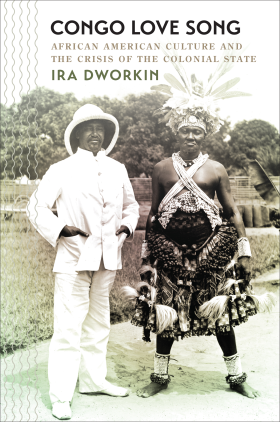 In his 1903 hit “Congo Love Song,” James Weldon Johnson recounts a sweet if seemingly generic romance between two young Africans. While the song’s title may appear consistent with that narrative, it also invokes the site of King Leopold II of Belgium’s brutal colonial regime at a time when African Americans were playing a central role in a growing Congo reform movement. In an era when popular vaudeville music frequently trafficked in racist language and imagery, “Congo Love Song” emerges as one example of the many ways that African American activists, intellectuals, and artists called attention to colonialism in Africa. In this book, Ira Dworkin examines black Americans’ long cultural and political engagement with the Congo and its people. Through studies of George Washington Williams, Booker T. Washington, Pauline Hopkins, Langston Hughes, Malcolm X, and other figures, he brings to light a long-standing relationship that challenges familiar presumptions about African American commitments to Africa. Dworkin offers compelling new ways to understand how African American involvement in the Congo has helped shape anticolonialism, black aesthetics, and modern black nationalism.
In his 1903 hit “Congo Love Song,” James Weldon Johnson recounts a sweet if seemingly generic romance between two young Africans. While the song’s title may appear consistent with that narrative, it also invokes the site of King Leopold II of Belgium’s brutal colonial regime at a time when African Americans were playing a central role in a growing Congo reform movement. In an era when popular vaudeville music frequently trafficked in racist language and imagery, “Congo Love Song” emerges as one example of the many ways that African American activists, intellectuals, and artists called attention to colonialism in Africa. In this book, Ira Dworkin examines black Americans’ long cultural and political engagement with the Congo and its people. Through studies of George Washington Williams, Booker T. Washington, Pauline Hopkins, Langston Hughes, Malcolm X, and other figures, he brings to light a long-standing relationship that challenges familiar presumptions about African American commitments to Africa. Dworkin offers compelling new ways to understand how African American involvement in the Congo has helped shape anticolonialism, black aesthetics, and modern black nationalism.
John Munro, The Anticolonial Front: The African American Freedom Struggle and Global Decolonisation, 1945-1960 (Cambridge University Press, 2017).
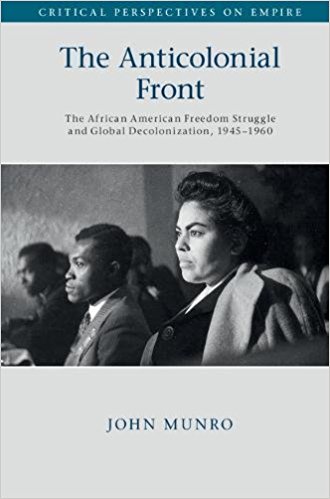 This is a transnational history of the activist and intellectual network that connected the Black freedom struggle in the United States to liberation movements across the globe in the aftermath of World War II. John Munro charts the emergence of an anticolonial front within the postwar Black liberation movement comprising organisations such as the National Association for the Advancement of Colored People, the Council on African Affairs and the American Society for African Culture and leading figures such as W. E. B. Du Bois, Claudia Jones, Alphaeus Hunton, George Padmore, Richard Wright, Esther Cooper Jackson, Jack O’Dell and C. L. R. James. Drawing on a diverse array of personal papers, organisational records, novels, newspapers and scholarly literatures, the book follows the fortunes of this political formation, recasting the Cold War in light of decolonisation and racial capitalism and the postwar history of the United States in light of global developments.
This is a transnational history of the activist and intellectual network that connected the Black freedom struggle in the United States to liberation movements across the globe in the aftermath of World War II. John Munro charts the emergence of an anticolonial front within the postwar Black liberation movement comprising organisations such as the National Association for the Advancement of Colored People, the Council on African Affairs and the American Society for African Culture and leading figures such as W. E. B. Du Bois, Claudia Jones, Alphaeus Hunton, George Padmore, Richard Wright, Esther Cooper Jackson, Jack O’Dell and C. L. R. James. Drawing on a diverse array of personal papers, organisational records, novels, newspapers and scholarly literatures, the book follows the fortunes of this political formation, recasting the Cold War in light of decolonisation and racial capitalism and the postwar history of the United States in light of global developments.
Rosalind Rosenberg, Jane Crow: The Life of Pauli Murray (Oxford University Press, 2017).
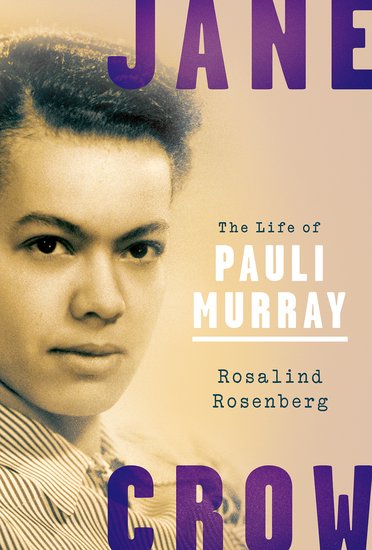 Throughout her prodigious life, activist and lawyer Pauli Murray systematically fought against all arbitrary distinctions in society, channeling her outrage at the discrimination she faced to make America a more democratic country. In this definitive biography, Rosalind Rosenberg offers a poignant portrait of a figure who played pivotal roles in both the modern civil rights and women’s movements. When appointed by Eleanor Roosevelt to the President’s Commission on the Status of Women in 1962, she advanced the idea of Jane Crow, arguing that the same reasons used to condemn race discrimination could be used to battle gender discrimination. In 1965, she became the first African American to earn a JSD from Yale Law School and the following year persuaded Betty Friedan to found an NAACP for women, which became NOW. In the early 1970s, Murray provided Ruth Bader Ginsburg with the argument Ginsburg used to persuade the Supreme Court that the Fourteenth Amendment to the Constitution protects not only blacks but also women – and potentially other minority groups – from discrimination. By that time, Murray was a tenured history professor at Brandeis, a position she left to become the first black woman ordained a priest by the Episcopal Church in 1976. Murray accomplished all this while struggling with issues of identity. She believed from childhood she was male and tried unsuccessfully to persuade doctors to give her testosterone. While she would today be identified as transgender, during her lifetime no social movement existed to support this identity. She ultimately used her private feelings of being “in-between” to publicly contend that identities are not fixed, an idea that has powered campaigns for equal rights in the United States for the past half-century.
Throughout her prodigious life, activist and lawyer Pauli Murray systematically fought against all arbitrary distinctions in society, channeling her outrage at the discrimination she faced to make America a more democratic country. In this definitive biography, Rosalind Rosenberg offers a poignant portrait of a figure who played pivotal roles in both the modern civil rights and women’s movements. When appointed by Eleanor Roosevelt to the President’s Commission on the Status of Women in 1962, she advanced the idea of Jane Crow, arguing that the same reasons used to condemn race discrimination could be used to battle gender discrimination. In 1965, she became the first African American to earn a JSD from Yale Law School and the following year persuaded Betty Friedan to found an NAACP for women, which became NOW. In the early 1970s, Murray provided Ruth Bader Ginsburg with the argument Ginsburg used to persuade the Supreme Court that the Fourteenth Amendment to the Constitution protects not only blacks but also women – and potentially other minority groups – from discrimination. By that time, Murray was a tenured history professor at Brandeis, a position she left to become the first black woman ordained a priest by the Episcopal Church in 1976. Murray accomplished all this while struggling with issues of identity. She believed from childhood she was male and tried unsuccessfully to persuade doctors to give her testosterone. While she would today be identified as transgender, during her lifetime no social movement existed to support this identity. She ultimately used her private feelings of being “in-between” to publicly contend that identities are not fixed, an idea that has powered campaigns for equal rights in the United States for the past half-century.
Christopher Tinson, Radical Intellect: Liberator Magazine and Black Activism in the 1960s (University of North Carolina Press, 2017)
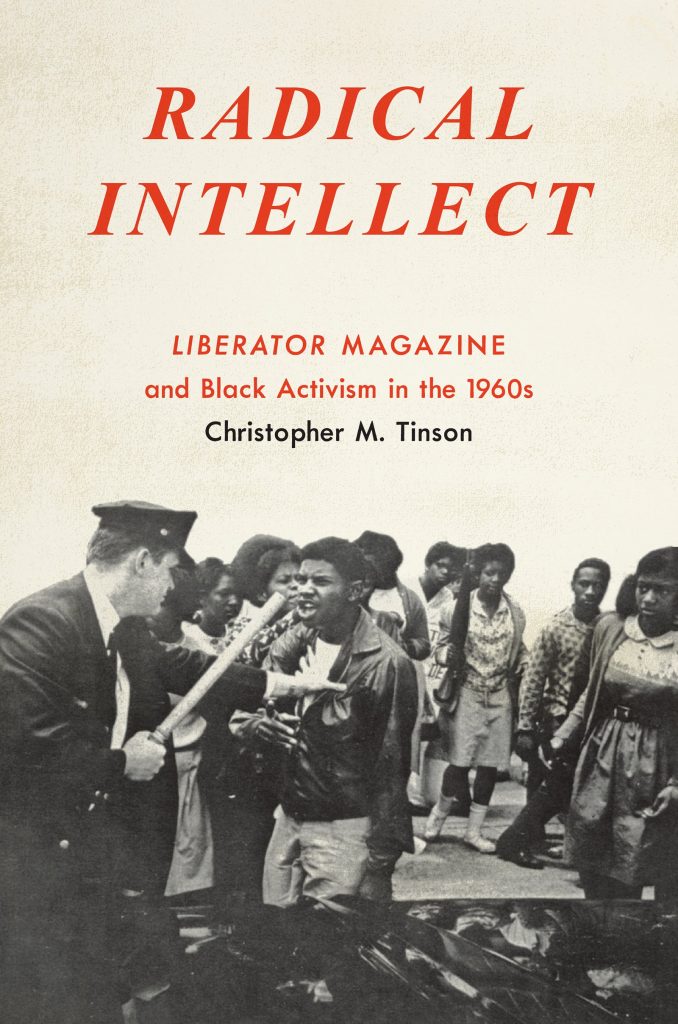 The rise of black radicalism in the 1960s was a result of both the successes and the failures of the civil rights movement. The movement’s victories were inspirational, but its failures to bring about structural political and economic change pushed many to look elsewhere for new strategies. During this era of intellectual ferment, the writers, editors, and activists behind the monthly magazine Liberator (1960–71) were essential contributors to the debate. In the first full-length history of the organization that produced the magazine, Christopher M. Tinson locates the Liberator as a touchstone of U.S.-based black radical thought and organizing in the 1960s. Combining radical journalism with on-the-ground activism, the magazine was dedicated to the dissemination of a range of cultural criticism aimed at spurring political activism, and became the publishing home to many notable radical intellectual-activists of the period, such as Larry Neal, Ossie Davis, Ruby Dee, Harold Cruse, and Askia Touré. By mapping the history and intellectual trajectory of the Liberator and its thinkers, Tinson traces black intellectual history beyond black power and black nationalism into an internationalism that would shape radical thought for decades to come.
The rise of black radicalism in the 1960s was a result of both the successes and the failures of the civil rights movement. The movement’s victories were inspirational, but its failures to bring about structural political and economic change pushed many to look elsewhere for new strategies. During this era of intellectual ferment, the writers, editors, and activists behind the monthly magazine Liberator (1960–71) were essential contributors to the debate. In the first full-length history of the organization that produced the magazine, Christopher M. Tinson locates the Liberator as a touchstone of U.S.-based black radical thought and organizing in the 1960s. Combining radical journalism with on-the-ground activism, the magazine was dedicated to the dissemination of a range of cultural criticism aimed at spurring political activism, and became the publishing home to many notable radical intellectual-activists of the period, such as Larry Neal, Ossie Davis, Ruby Dee, Harold Cruse, and Askia Touré. By mapping the history and intellectual trajectory of the Liberator and its thinkers, Tinson traces black intellectual history beyond black power and black nationalism into an internationalism that would shape radical thought for decades to come.
